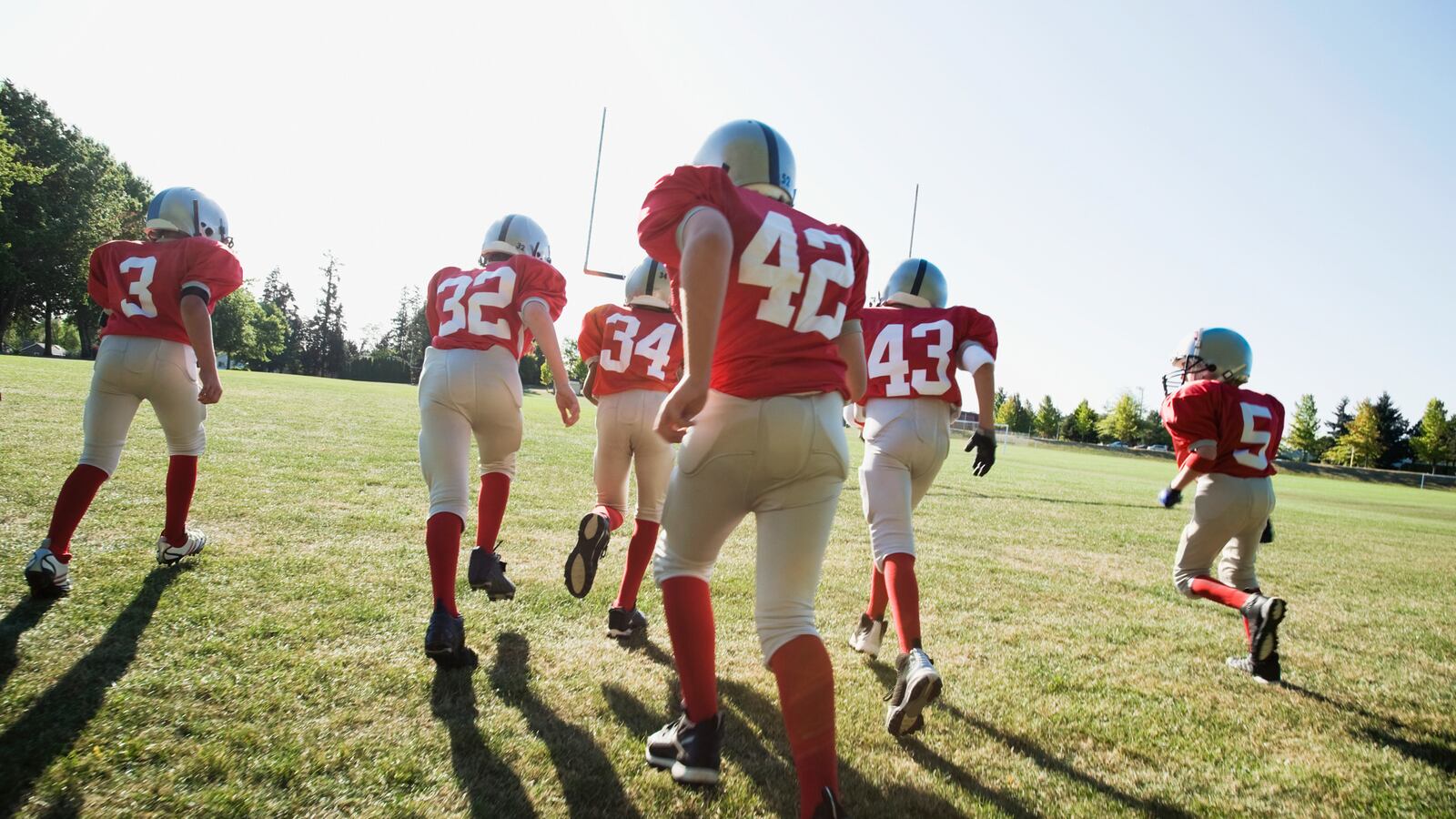I would love to buy a Michael Sam jersey. The jerseys are selling like hotcakes, presumably in support of the first openly gay man to be drafted into the NFL. As an openly gay man myself, I find Sam’s courage wholly admirable, and I think he’s a credit to our community. Because of him, as well as fellow athletes like Jason Collins and Robbie Rogers, gay male youth who lacked role models in the realm of professional sports now have trailblazers who have demonstrated that “gay” and “athlete” can go perfectly well together in a sentence. I wish him nothing but the best.

But I won’t buy his jersey, because I have serious problems with his sport.
By now, the ill effects of repeated head trauma on professional football players are well known. The list of former players with chronic traumatic encephalopathy (CTE), a degenerative disease of athletes who have sustained repeated head trauma, seems to add new names inexorably over time. However, the damage may not be limited to the pros. While there is a lack of good data about the effects of concussion on younger athletes, evidence exists that football players at the collegiate level have changes in their brain structure and reaction time that appear to increase the longer they play football. A disturbing element of those data is that these changes can even be seen in players without a diagnosed history of concussion.
Tackle football is on a very short list of things my children are absolutely forbidden from doing. I hope none of my sons want to play it when they get older, because the answer will always be a non-negotiable “no.” They only have one brain, and jeopardizing its safety unnecessarily is a complete non-starter for me.
When it comes to my kids, the answer is easy. When it comes to my patients, things become more complicated.
Every season without fail, I have a handful of football-playing patients who come in with concussions. (I could say the same thing about hockey, about which I have similar reservations.) Usually at least one or two of these patients will have a severe enough concussion that symptoms last for several weeks, the risk of which increases if they’ve had a concussion before. Since not just physical but cognitive rest is recommended as part of recovery from the injury, this can have a very negative impact on their ability to attend school and keep up with their work.
So do I uniformly tell my football-playing patients to stop? Does every parent get told that they should pull their kid from the team? No.
In some cases, I really feel I have no ethical choice but to express concerns. The more skeletally and neurologically immature a child is, the worse the idea for him to play tackle football, and if I have a patient who plays in a league like Pop Warner I feel obligated to say so. Though there is a notable scarcity of study regarding the effects of tackle football on developing brains, given what we know about the damage it can wreak on older players, I do not see how I can urge anything but caution and choosing an alternative sport.
But things get more ambiguous for my teenage patients whose pubertal development is consistent with skeletal maturity. After all, I must concede that I have many, many more patients who play football than come in with injuries every year. By most accounts, the overwhelming majority of them derive a great deal of pleasure from participation, and experience a number of benefits: They get regular exercise, they gain experience working as a team, and they develop stabilizing relationships with additional adult authority figures during potentially vulnerable years. For these kids, it would be wrong to deny the good things they get from playing, which I would be perceived as trying to take away if I told them to stop.
With every patient and every family, I have a certain tally of good will. It’s impossible to quantify, and varies from person to person. The longer and better my physician-patient relationship, the bigger the store. While I believe I have a pretty good reserve with most of the patients in my practice, I would be a fool to think the supply is infinite with any of them.
Advising parents to pull their kids out of America’s most popular sport would cause much of that good will to evaporate. It would mean a genuine loss in quality of life for many patients and their families, to mitigate a risk that has yet to be well defined. If a patient is not yet playing football and a parent asks for my opinion, I gladly share it. However, for patients who are already playing high school football, I don’t tell them to stop. They all get a thorough discussion of concussions and are told to err on the side of caution if they ever have any doubt if they’ve sustained one (off goes the helmet for the rest of the game, and no return to play until they’ve been medically cleared), but that’s as far as it goes.
If I had my wish, football would suffer a sudden and irreversible drop in popularity. I think the havoc it can wreak on players’ brains is not worth the risk, to say nothing of the potential for catastrophic orthopedic injuries. My choice as a parent is clear.
But other parents make different risk/benefit calculations for their kids, which pan out OK for almost all of them. For those patients, the best I feel I can do is give them all the information I can, and hope they’ll have a concussion-free season.






